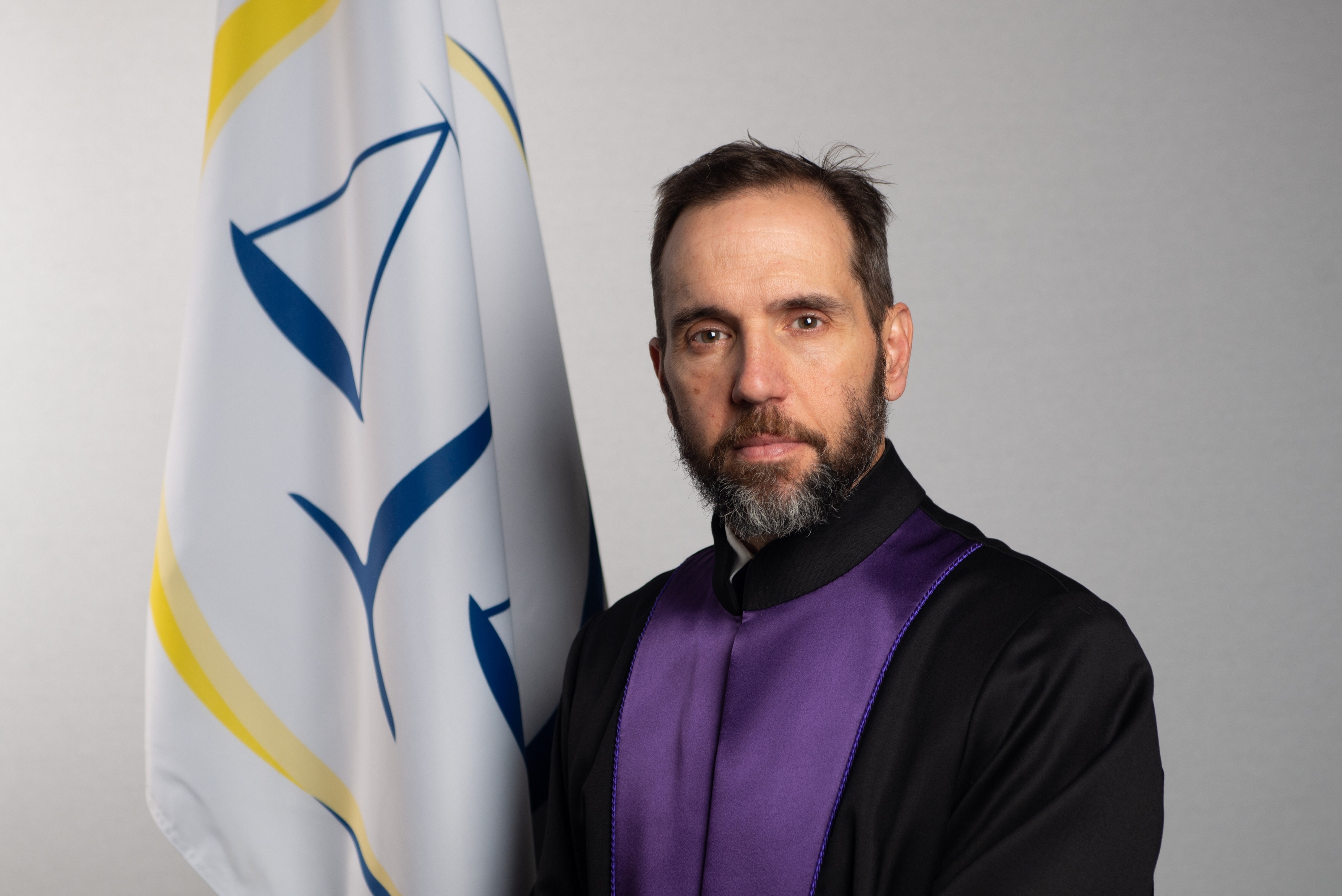Mr. Smith Goes to Washington
What triggered the appointment of a special counsel, who is Jack Smith, and what, if anything, does this mean for the investigations into Donald Trump?

Published by The Lawfare Institute
in Cooperation With

Attorney General Merrick Garland’s decision, announced this afternoon, to appoint a special counsel to take over two investigations involving former President Donald Trump must have been a painful one for the attorney general.
It means that someone other than the attorney general himself will ultimately decide the disposition of the Trump investigations. It means that someone other than Garland will review whatever prosecution memoranda the teams on the Mar-a-Lago and Jan. 6 investigations produce. And it means that these decisions will be made outside of a Justice Department hierarchy whose processes and prestige Garland has devoted so much energy to reinvigorating.
Garland has insisted to date that the Justice Department can handle these matters with integrity through its regular processes. And at his announcement speech today, Garland made clear that what had changed was not his confidence in the department’s fairness or integrity, or his own ability impartially to supervise the investigation. What had changed, rather, was Trump’s status with respect to the administration.
“Based on recent developments, including the former president’s announcement that he is a candidate for president in the next election, and the sitting president’s stated intention to be a candidate as well, I have concluded that it is in the public interest to appoint a special counsel,” Garland said.
The use of the phrase “recent developments” (note that “developments” is in the plural form) suggests that Trump’s presidential announcement may not have been the only factor. But Trump’s Nov. 15 announcement that he would be seeking the presidency again clearly was the dominant factor. It’s one thing for the Justice Department to investigate a former president who did run against the incumbent president. It’s quite another thing for the Justice Department to prosecute a man who is actively running against the incumbent president and would, if elected, fire the attorney general.
Under 28 C.F.R. § 600.1, the attorney general is required to appoint a special counsel under two separate situations in which a “criminal investigation of a person or matter is warranted.” In the first circumstance, there must be a “conflict of interest for the Department.” In the second, some “other extraordinary circumstances” must exist to require the appointment of a special counsel. Under either circumstance, the attorney general must also consider whether “it would be in the public interest to appoint” one.
Trump’s announcement arguably triggered the “conflict of interest” language of the regulation: How is it not a conflict of interest to investigate or prosecute a man who is running for office and would fire you if elected?
But Garland made clear that this was not the basis for his decision. “The Department of Justice has long recognized that in certain extraordinary cases it is in the public interest to appoint a special prosecutor to independently manage an investigation and prosecution," he said, a clear reference to the language of the second prong. Relatedly, Garland reinforced the public interest basis for his action when he said that given Trump’s White House announcement and President Biden’s intention to run for reelection in 2024 as well, going forward with the appointment was “in the public interest.” This appears to suggest that Garland still does not believe the matter presents a conflict of interest for the department—or at least, has not concluded that it does.
So what does Garland’s order actually do?
Under the terms of his appointment order, Special Counsel Jack Smith will take control of parts of the Justice Department’s Jan. 6 investigation, along with its investigation into sensitive documents held improperly at Mar-a-Lago.
When it comes to the Jan. 6 probe, a significant component of the work will still be run out of the U.S. Attorney’s Office for the District of Columbia. The order states that Smith will oversee “the ongoing investigation into whether any person or entity violated the law in connection with efforts to interfere with the lawful transfer of power following the 2020 presidential election or the certification of the Electoral College vote held on or about January 6, 2021.” The U.S. attorney’s office, though, will retain control over “prosecutions that are currently pending in the District of Columbia, as well as future investigations and prosecutions of individuals for offenses they committed while physically present on the Capitol grounds on January 6, 2021.”
In other words, it seems that the lower-level cases involving rioters at the Capitol—including the high-profile seditious conspiracy cases against Oath Keepers and Proud Boys—will stay where they currently are. On the other hand, the investigation of the political echelon figures will migrate to the special counsel, which will handle any prosecutions that may arise from it.
Of course, the clean distinction between the cases involving rioters on the Capitol grounds, on the one hand, and the higher-level question of involvement in the insurrection by Trump and his associates, on the other, may grow less clean if investigation reveals connections between the White House and the people on the ground.
As if acknowledging this complication, the order states, “Further delineation of the authorizations between the Special Counsel and the United States Attorney for the District of Columbia will be provided as necessary and appropriate.”
When it comes to the Mar-a-Lago investigation, the order establishes that Smith will oversee “the ongoing investigation referenced and described in the United States' Response to Motion for Judicial Oversight and Additional Relief, Donald J Trump v. United States”—that is, the investigation into possible violations of 18 U.S.C. § 1519, 18 U.S.C. § 2071, and 18 U.S.C. § 793. Notably, the Justice Department’s press release describes this category of Smith’s work as concerning as “the ongoing investigation involving classified documents and other presidential records, as well as the possible obstruction of that investigation” (emphasis added).
Under the order, Smith has the power both to investigate and “prosecute federal crimes arising from the investigation of these matters” and the authority to “refer to the appropriate United States Attorney discrete prosecutions that may arise from the Special Counsel's investigation.” And in both the Jan. 6 and Mar-a-Lago probes, the order also authorizes Smith to look into “any matters that arose or might arise directly from this investigation or that are within the scope of 28 C.F.R. § 600.4(a)”—a portion of the special counsel regulations that provides the special counsel with authority to “investigate and prosecute federal crimes committed in the course of, and with intent to interfere with, the Special Counsel's investigation, such as perjury, obstruction of justice, destruction of evidence, and intimidation of witnesses.”
All of which raises the question: Who the heck is Jack Smith that the indictment of Donald Trump should be up to him?
Despite his common name, Smith might have one of the most uncommon professional backgrounds of anyone at the department. A 1994 Harvard Law School graduate, Smith spent the first fourteen years of his career as a U.S.-based prosecutor, first as an assistant district attorney in New York and then as an assistant U.S. attorney in the eastern district of New York. In 2008, Smith joined the International Criminal Court (ICC), where he served as an investigation coordinator with the Office of the Prosecutor and worked on various investigations of foreign government officials on matters ranging from war crimes to genocide.
Smith returned to the Justice Department in 2010 to serve as the head of the department’s Public Integrity Section, which focuses on the criminal prosecution of public officials for corruption and other offenses. During his time there, the Section pursued several high-profile prosecutions, including the prosecutions of former CIA officer Jeff Sterling for leaking classified information and obstructing justice, former Virginia Governor Bob McDonnell for honest services fraud (a conviction later overturned by the Supreme Court), and former Rep. Rick Renzi for bribery and extortion. Smith left the section in 2015 to join the U.S. attorney’s office for the middle district of Tennessee as its first assistant U.S. attorney and ultimately served as its acting U.S. attorney as well.
Smith left that role in 2017 and spent a year as an executive at a healthcare provider before choosing to go back overseas. In September 2018, he joined the Kosovo Specialist Chambers in the Hague as its second specialist prosecutor. A specialized international criminal body set up by the European Union and Kosovar authorities, the Special Chambers is responsible for investigating and prosecuting war crimes and crimes against humanity in Kosovo under Kosovar law. Smith remained in that position until his appointment as special counsel, at which point he resigned.
Smith’s appointment puts an experienced prosecutor at the helm of the investigations into former President Trump, and a number of former Justice Department officials have voiced support for Garland’s choice. Perhaps more importantly, during his time in the Public Integrity Section, Smith gained substantial experience investigating and prosecuting both high-ranking former officials and crimes relating to the mishandling of classified information, two areas that overlap in relation to the Mar-a-Lago investigation and other investigations that the special counsel will be heading.
And while it’s unlikely that Trump will face any charges for war crimes, Smith’s experience with such investigations—which often involve former high-ranking officials, complex claims of immunity, and substantial public scrutiny—is far from irrelevant. No doubt some supporters of Trump will attempt to use Smith’s leadership role during the Obama administration and relationship with the ICC and related bodies—towards whom Trump was notoriously hostile while in office—as the basis for some claim of bias. (Notably, Politico reports that Smith is registered to vote as an independent.) But Smith’s record seems to show that he is above all else a serious and credible investigator and prosecutor whose experience makes him well-suited to the unique challenges of the special counsel role.
So what does all of this mean for the investigations going forward?
Garland hastened to insist that the appointment would not slow their progress, saying “I will ensure that the special counsel receives the resources to conduct this work quickly and completely. Given the work to date and Mr. Smith's prosecutorial experience, I am confident this appointment will not slow the completion of these investigations.” And in his own statement, issued moments after Garland completed his speech, the new special counsel said “The pace of the investigations will not pause or flag under my watch.”
Garland also implied in his speech that professionals within the Department already working on these investigations would continue doing so—though Smith will presumably have the final word on his own staffing. In other words, the intention appears to be to keep the investigative and prosecutorial teams the same as they are, but to simply have them report to new leadership.
But this is no mere nominal shift. Under the regulations, specifically § 600.7(b), the special counsel is not under the day-to-day supervision of the attorney general. Although the attorney general can ask that the special counsel explain his or her decisions, those decisions cannot be reversed unless the attorney general concludes that “the action was so inappropriate or unwarranted under Departmental practices that it should not be pursued.” Not only that, the attorney general must then notify Congress that the special counsel is being overruled. In other words, there is a very high threshold for the attorney general to interfere with or manage the special counsel’s independent judgment.
All of that is to say that Garland’s announcement today means that unless he conducts himself in a truly egregious manner, Jack Smith, not Garland himself, will be making the ultimate decisions as to whether and what prosecutions come out of these investigations and will be supervising the litigations in question.
Trump, for his part, wasted no time in attacking the new special counsel—whom he had likely never heard of before today. Fox New reports:
Former President Donald Trump blasted the Justice Department's appointment of a special counsel to take over investigations related to presidential records and Jan. 6, telling Fox News he "won’t partake in it" and calling it "the worst politicization of justice in our country," while urging the Republican Party to take action.
"I have been going through this for six years — for six years I have been going through this, and I am not going to go through it anymore," Trump told Fox News Digital in an exclusive interview Friday shortly after the announcement. "And I hope the Republicans have the courage to fight this."
"I have been proven innocent for six years on everything — from fake impeachments to [former special counsel Robert] Mueller who found no collusion, and now I have to do it more?" Trump said. "It is not acceptable. It is so unfair. It is so political."
Trump’s points are meritless. These investigations were happening away. Smith’s appointment does not present the question of whether Mar-a-Lago and Jan. 6 will be investigated or prosecuted. It presents only the question of who will make the key decisions and lead the team in those investigations.
But meritless attacks against Mr. Smith, like Bob Mueller before him, will surely come fast and furious over the next few weeks.
That’s what happens when Mr. Smith Goes to Washington.







-final.png?sfvrsn=b70826ae_3)
